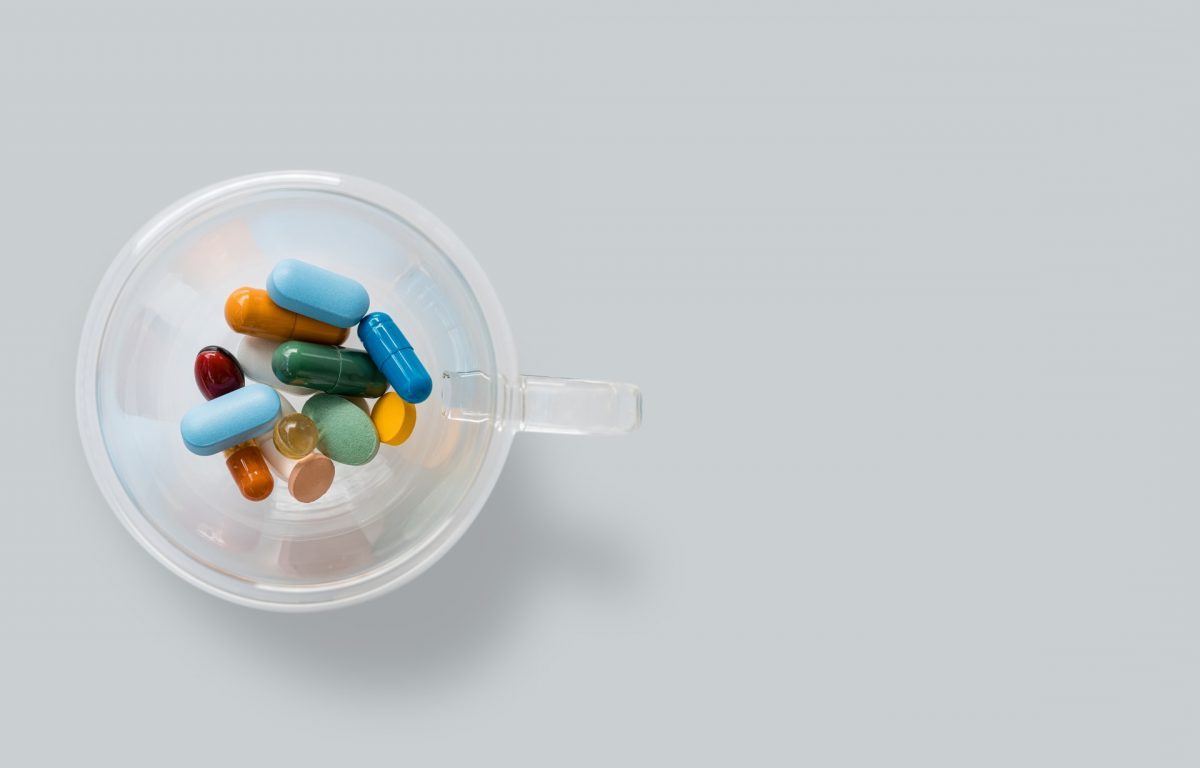
Nobody likes to be sick. And let’s be real, it feels impossible to parent when under the weather. Unfortunately, viral and bacterial illnesses do not discriminate. Wouldn’t it be great if we could just jump into a pool of germs and viruses and not worry about catching anything? If you’re wondering how to strengthen your immune system to ensure it remains working in your favor, you’ll want to consider the following lifestyle modifications that will aid your immune system in working to the best of its ability.
The immune system is our body’s first line of defense against pathogens and disease. Its main job is to detect and neutralize and/or destroy disease-causing agents like viruses, parasites, and bacteria that invade cells in our body. It’s an intricate “system” made up of cells, tissues, and organs working together to destroy (or repair) any threats to the body’s equilibrium.
We are most aware of our immune system when it is in overdrive (i.e. when we are experiencing fevers, allergies, or a runny nose), but it is a workhorse that never quits and could use consistent TLC (tender love and care) on our end.
It’s important to remember/note that genetics play a large role in our immune defenses. Some people simply get sick more often than others no matter how much immune-boosting Vitamin C they take, for example. So while you cannot necessarily change the cards you were dealt, you can help create a favorable environment through lifestyle changes such as improving your gut health, improving sleeping habits, and significantly reducing sugar intake.
3 Maintainable Lifestyle Shifts That Will Teach You How To Strengthen Your Immune system
Improve Gut Health
The gastrointestinal system – or gut for short – has two main jobs: digestion and protection. On one hand it digests our food, absorbs nutrients from the food and excretes what it does not use. On the other, it protects and defends its host (that’s us!) against invasion by harmful bacteria. If you’ve ever had food poisoning you’ve experienced the immune system’s forceful attempt to keep you safe by ridding the body of the harmful bacteria.
The gut contains roughly 70%-80% of the body’s immune cells [1]. It also houses trillions of microorganisms consisting of bacteria, viruses, fungi, and parasites that create an “ecosystem” called the microbiome. In a healthy individual, these microorganisms are in harmony with one another and help support several immune system functions.
In her article “How The Gut Microbiota Influences Our Immune System,” neuroscience researcher Sara Adaes, PhD further explains the significance of this harmony [2]:
“A healthy cross talk between the gut microbiota [a.k.a microbiome] and the immune system supports protective responses against pathogens, promotes tolerance to harmless microbes and their products and helps … the ability of our immune system not to react harmfully to our own body.”
While both beneficial (good) and pathogenic (not so good) bacteria and other microorganisms are a very natural part of our existence, we start running into problems when there becomes an imbalance to the ratio of pathogenic microorganisms versus the beneficial ones. This leads to disproportionate numbers of pathogens brought on by situations like long-term antibiotic use, poor diet, certain infections, and could cause symptoms like digestive disturbances and intestinal permeability.
Intestinal permeability, widely referred to as “leaky gut syndrome,” is a digestive condition in which bacteria and toxins are able to “leak” through the intestinal wall [3]. Typically, the walls of the intestines [contain tight junctions and] act as barriers, controlling what enters the bloodstream to be transported to your organs [4]. When these junctions become loose, the gut becomes more permeable – allowing harmful substances to enter the bloodstream.
“Think of your gut as a drawbridge. Your gut is naturally semi-permeable to let teeny-tiny boats (micronutrients) pass through your intestinal wall and into your bloodstream. It’s how you absorb your food,” explains Dr. Amy Myers, functional medicine doctor specializing in autoimmune conditions.
“When your gut is leaky, much larger boats that were never meant to get through (toxins, microbes, and undigested food particles) can escape into your bloodstream. Your immune system marks these “foreign invaders” as pathogens and attacks them [5].” With a leaky gut, one may experience food intolerances, inflammation, chronic fatigue, irritable bowel syndrome and skin issues like acne or eczema.
If you’re wondering the first step of how to strengthen your immune system, start with the gut. When gut health is compromised, it lends itself to a compromised immune system. The immune system benefits greatly when the gut’s ecosystem is functioning in harmony and is properly nourished which increases the likelihood of a larger ratio of beneficial bacteria (and other microorganisms) versus pathogenic bacteria.
Luckily, the gut’s microbiome changes rapidly with diet [6], so every meal is an opportunity to make an improvement in your digestive health and strengthen your immune system in the process. Barring any food sensitivities or allergies, increase gut friendly herbs and fresh vegetables like leeks, mushrooms, garlic, parsley and complex carbohydrates like sweet potatoes, quinoa, and legumes. Bone broth is also very soothing and healing to the gut.
Also be sure to include good-bacteria boosting foods, known as probiotic foods, include kefir, yogurt, and sauerkraut. In most cases, eating a diverse range of fruits and vegetables and complex carbohydrates can help set you on the right path toward strengthening your digestion and immune system [7].
Read More: How To Improve Gut Health
Get Adequate Sleep
Looking for a nearly effortless way to strengthen your immune system? Get a good night’s sleep! Just like the body needs food, water, and oxygen to survive – it also needs adequate sleep in order to restore, repair and re-energize itself and operate at full capacity the next day.
During sleep, our body begins a deep restoration process where the brain recharges, certain organs clean and purify toxins encountered throughout the day, hormones are secreted to help to repair tissue (among several other functions), and certain cells in our immune system produce important proteins, called cytokines, that help fight infection and inflammation in our bodies [8].
“Certain cytokines need to increase when you have an infection or inflammation or when you’re under stress. Sleep deprivation may decrease production of these protective cytokines,” explains sleep medicine specialist, Eric Olson, M.D. “Infection fighting antibodies and cells are reduced during periods of [insufficient] sleep. [Basically], your body needs sleep to fight infectious diseases.”
An enlightening example of how both length and quality of sleep affects immunity is found in a 2009 study titled Sleep Habits and Susceptibility to the Common Cold [9] (Cohen, S. et al.), volunteers recorded their sleep duration and efficiency for 14 days and then were quarantined for 14 days after being exposed to a rhinovirus – the virus responsible for the common cold [10].
The study found that the volunteers who slept less than seven hours were three times more likely to become infected with the rhinovirus than those who slept eight hours or more. Additionally, those who had better quality of sleep were less likely to become infected with the virus.
In order to address how to get better sleep, it’s important to be aware of the body’s natural patterns and rhythms. Sleep is largely influenced by the body’s 24-hour “internal clock” known as the circadian rhythm, which is controlled by a small part of the brain that is responsible for regulating and coordinating basic functions necessary for life [11]. It cycles in between intervals of sleepiness and awakeness and typically coincides with night and day.
Our circadian rhythm thrives on predictability and works most efficiently with regular sleep habits, often giving “clues” when our actions and behaviors are not aligned favorably with its routines. In fact, organs have their own “internal clocks” by which they perform essential functions such as tissue repair or waste elimination [12].
The effect of an out-of-whack circadian rhythm can be seen (and felt!) when we experience jet lag, stay up too late marathoning Gilmore Girls on Netflix, or experience a post-lunch dip in energy that leaves you reaching for that second or third cup of coffee of the day. Other subtle disruptors include light exposure in the evening, erratic eating patterns, and even sleeping-in on the weekends!
The circadian rhythm realigns when we sleep properly and are in-tune with our body’s natural sleep/wake cycles. If you have trouble sleeping, try limiting your exposure to artificial an hour before bedtime and take a few deep breaths to help your body relax as you prepare for sleep. The better quality of sleep we get, the more efficiently our body and our immune system works in the restoration process. Good sleep lays the framework for our days and when we get enough of it, we are investing in our body and strengthening our immune system in the process.
Read More: The Signs of Sleep Deprivation and How To Avoid It
Eliminate Sugar & Limit Refined Carbohydrates
According to the latest statistics from the U.S. Office of Disease Prevention and Health Promotion, the average American consumes 17 teaspoons of sugar a day [13]. Similarly, the average American consumes 80% of their calories from ultra-processed, store bought food and beverages [14].
If that seems like a lot, consider everything you eat and drink in a day and you’ll likely see that there are added sugars lurking in your food. The added sugars and processed foods we are putting our bodies put us at risk for lowered immunity throughout the day.
Therefore, eliminating added sugars from your diet is a crucial step in learning how to strengthen your immune system. Equally important is limiting consumption of refined carbohydrates (your body breaks carbs down into sugar!) and processed foods which, in addition to providing little nutritional value, have all been found to temporarily suppress the immune system by over 50% within a few hours of consumption by impairing the white blood cells from doing their job properly – which includes scavenging up bacteria and other intruders that can make you sick [15].
In the book Boosting Your Immunity for Dummies, author Wendy Warner refers to sugar as “the monkey on your back” and explains the feedback loop that perpetuates sugar cravings:
“Eating sugar releases insulin to reduce your level of blood sugar, which may cause your blood sugar to fluctuate too low. Whenever anything in your body gets a low signal, your brain tells you to do something about it. In this case, it signals you to eat more sugar.”
Too much added sugar and refined carbohydrate intake has been linked to elevated inflammation levels in the body and can lead to a number of conditions such as obesity, insulin resistance, Type 2 Diabetes, and increased intestinal permeability [16].
Read More: 10 Easy Ways To Lower Blood Sugar Levels Naturally
While inflammation is generally a good thing and a necessary part of the body’s healing process, chronic low-grade inflammation, which can be caused by inflammatory foods such as sugar and processed foods, places perpetual stress on the body’s immune system and contributes to the development of diseases.
According to LiveScience Magazine, “low levels of inflammation can be triggered by a perceived internal threat, even when there isn’t a disease to fight or an injury to heal, and sometimes this signals the immune system to respond. As a result, white blood cells swarm but have nothing to do and nowhere to go, and they may eventually start attacking internal organs or other healthy tissues and cells [17].”
If you’re looking for ways to strengthen your immune system, but feel like cutting out sugar and processed foods is a mountainous task, start by simply becoming aware of how much added sugars you are consuming in a day. Or next time you reach for a bag of your favorite “healthy” chips, keep in mind that every four to five grams of carbs breaks down into one teaspoon of sugar in our blood. Awareness is the first step on the path to making a change.
Then, start incorporating more “real” wholesome foods that naturally do not have any added sugars – vegetables, fruits, meat, fish, natural fats like olive oil or butter. In doing so, your blood sugar tends to stabilize and sugar/processed food cravings will begin to vanish and soon you will feel energy levels increase. Your immune system will thank you by working efficiently because you are giving it the nutrients it needs to do its job efficiently – keeping you safe and healthy!
The path to begin strengthening your immune system is simple: start improving your gut health by feeding it foods that promote beneficial bacteria, get enough sleep so your body has a chance to restore, repair and recharge, and eliminate inflammatory foods like added sugars and refined carbohydrates. Your body works tirelessly to keep you alive and functioning and deserves some TLC in return. Start today and your future self – and immune system – will thank you for it.






Heya i’m for the primary time here. I found this board and I in finding It really useful & it helped me out much. I am hoping to offer something back and aid others such as you helped me.|
Right away I am going away to do my breakfast, after having my breakfast coming over again to read other news.|